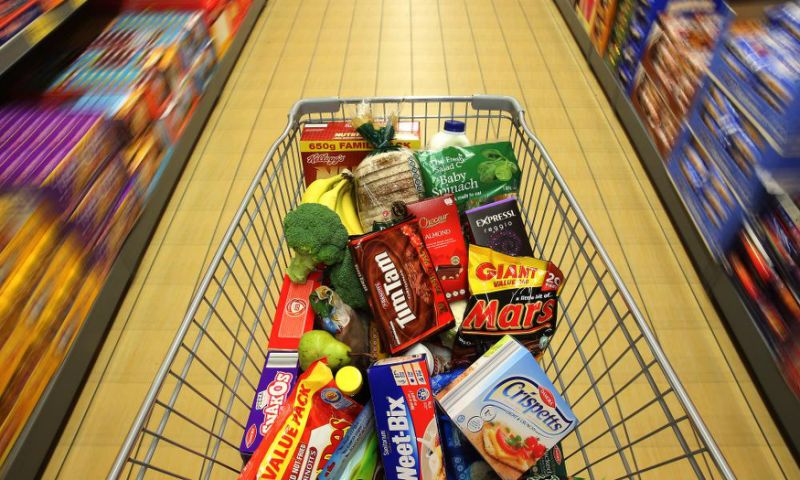When the monthly retail figures come out, no one generally cares too much about food retailing. It is the most boring of the retail categories and doesn’t really tell us much about how the economy is travelling.
While the amount we spend at restaurants and on household goods is a good indicator of how secure we feel about our income, the level we spend at grocery stores barely moves up or down – on average it shifts about half as much as the other categories.
In February the amount we spent at supermarkets actually rose 1% – a big jump, the biggest since January 2014. By contrast, in that time our monthly spending on clothing and footwear had jumped over 1% more than 20 times.
So the February increase was relatively noteworthy, something to highlight.
And then March said, hold my beer … and toilet rolls and pasta and flour and rice and eggs and cat litter and … in March, food retailing sales increased 24.1%.
It has utterly destroyed the scale of previous movements.
That 1% increase in February is now barely able to be seen, let alone noticed.
We panic-bought like we have never done before. And yes, it was a panic buy. There is no other term for it. The level of spending was well beyond what was reasonably needed, and we pretty much all did it, even if we don’t want to admit it.
Related: Even as behavioural researchers we couldn’t resist the urge to buy toilet paper | Liam Smith and Celine Klemm
At one level it was irrational, on another it was quite sensible, given what was happening, to see a roll of toilet paper and to think the logical action was to buy it just because it was there. Generally we’d like to think we were sensible and “they” were panic-buying. But you don’t get a 24% jump in supermarket sales from everyone just being a bit prudent about their needs for the next couple of weeks.
There’s a good bet we all have a couple of items in our cupboard that we are wondering what we expected was going to require us to have to eat them. I even have a couple jars of pasta sauce that I now don’t want to eat because Nat, the sweary chef, has made me feel guilty for buying jar sauce.
Some of our extra food purchases were substituting for eating out, because while food sales rose 24%, the sales from cafes, restaurants and takealways fell 23%. But it was not a perfect substitution because we spend a lot more money each month in supermarkets than we do eating out.
In March we spent, as a collective, $902m less eating out, but $2,802m more in the supermarkets.
This overall jump in food spending, added to the jump in other retailing (which includes pharmacies and electronic goods) and household goods (freezers and webcams and the like) meant that overall retail spending rose 8% in March.
Related: Australian supermarkets limit sales of essentials to prevent coronavirus panic buying
In normal times a rise in retail spending is good news. But this is not normal and clearly not sustainable.
Last month we began not reflexively buying toilet paper every time we saw it, or thinking, “ultra-long life milk? Yeah, I need three cartons of that”. And so our spending on food will fall – probably not by 24% to completely cancel out the March rise, but there will be a fall, and the fall will be greater in May as the need to stock-up recedes.
And we will see a similar fall in the other areas. There’s only so many bread-makers or freezers or webcams you need to buy, and purchases in pharmacies will also switch back to normal levels – or even lower as the usual flu season looks to be less bad because of our social distancing.
But we won’t be increasing our spending in cafes or restaurants – a sector that comprises around 14% of our monthly spending (more than on clothes and department stores combined) .
The retail spending is a good example of the difficulties of the return to normal – even the “good” news is a signal of abnormal and bad times, and the bad news is unlikely to recover in the near or medium term.




